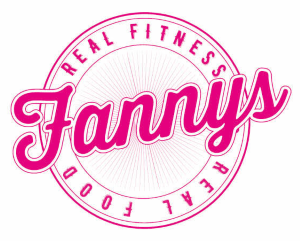You might have heard the name ‘Trans’ or ‘Transunsaturated Fat’ bouncing around, but do you understand what a Trans Fat is and why it is so bad for you?
There are two main types of dietary fats – saturated (the type of fat that is harder at room temperature and traditionally thought of as being detrimental to your health – although this is not quite the full story – and includes butter, animal fats, coconut oil, etc.) and unsaturated (the type which is softer at room temperature, includes the health boosting monounsaturated and polyunsaturated and is found in fish, algae, nuts, olive oils, vegetable oils etc.)
Trans fats are actually unsaturated fats (NB the ‘healthier’ type) that have been chemically altered – or hydrogenated – so that they are a) harder at room temperature b) taste a bit better and c) last a bit longer, making them ideal for packaged and processed foods that are going to sit on a shelf for some time. You will typically find them in crisps, cakes, biscuits, pastries, pies, ready meals, margarine and such like, but you wouldn’t necessarily know it, because manufacturers don’t like to advertise the fact and there are currently no legal requirements for them to be labelled as such. Do, however, have a look out in your ingredients lists for anything labelled ‘hydrogenated’ or ‘partially hydrogenated’. You may also find some products proudly stating ‘trans-fat free’ these days too.
So what’s the problem with Trans Fats? Well, both saturated and unsaturated fats are absolutely essential for optimum health, performing tasks such as providing energy, forming cell membranes, transporting certain vitamins and minerals, making and balancing hormones and more. HOWEVER, trans fats, because of their rigid nature, actually pack tightly into the membranes (the outer casing) of your cells, making cells themselves more rigid. Studies suggest that this can lead to an increased risk of Coronary Heart Disease, cancer, Alzheimers, Lymphoma and other chronic disease. They also lower our good cholesterol, increase liver cholesterol synthesis, suppress bile acid secretion, compete for essential fat uptake and exaggerate essential fatty acid deficiency. In one study looking at 80, 000 women over 14 years, the amount of trans fats in their diet was the most important correlate of heart disease (New England Journal of Medicine). In fact, even a single meal containing trans fats can diminish blood vessel function and elasticity, which can contribute to the progression of heart disease.
So, still fancy that cake, or biscuit, pastry or ready meal…? Or could you satisfy your hunger with a much more nutritious, health-boosting, body composition improving homemade or wholefood snack or meal instead?
If you need help sorting out your diet to improve your weight, body composition, or generalised health then get in touch for a personalised nutrition consultation and food plan for £45.00.





